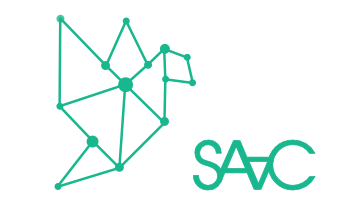Author: Giuseppina Schiavone
On Monday afternoon, the 11th of September 2023, my first time at the Feijenoord de Kuip Stadion and it was not for a football match but for the Topsector Logistiek Festival, organized by Topsector Logistiek and TKI DINALOG .
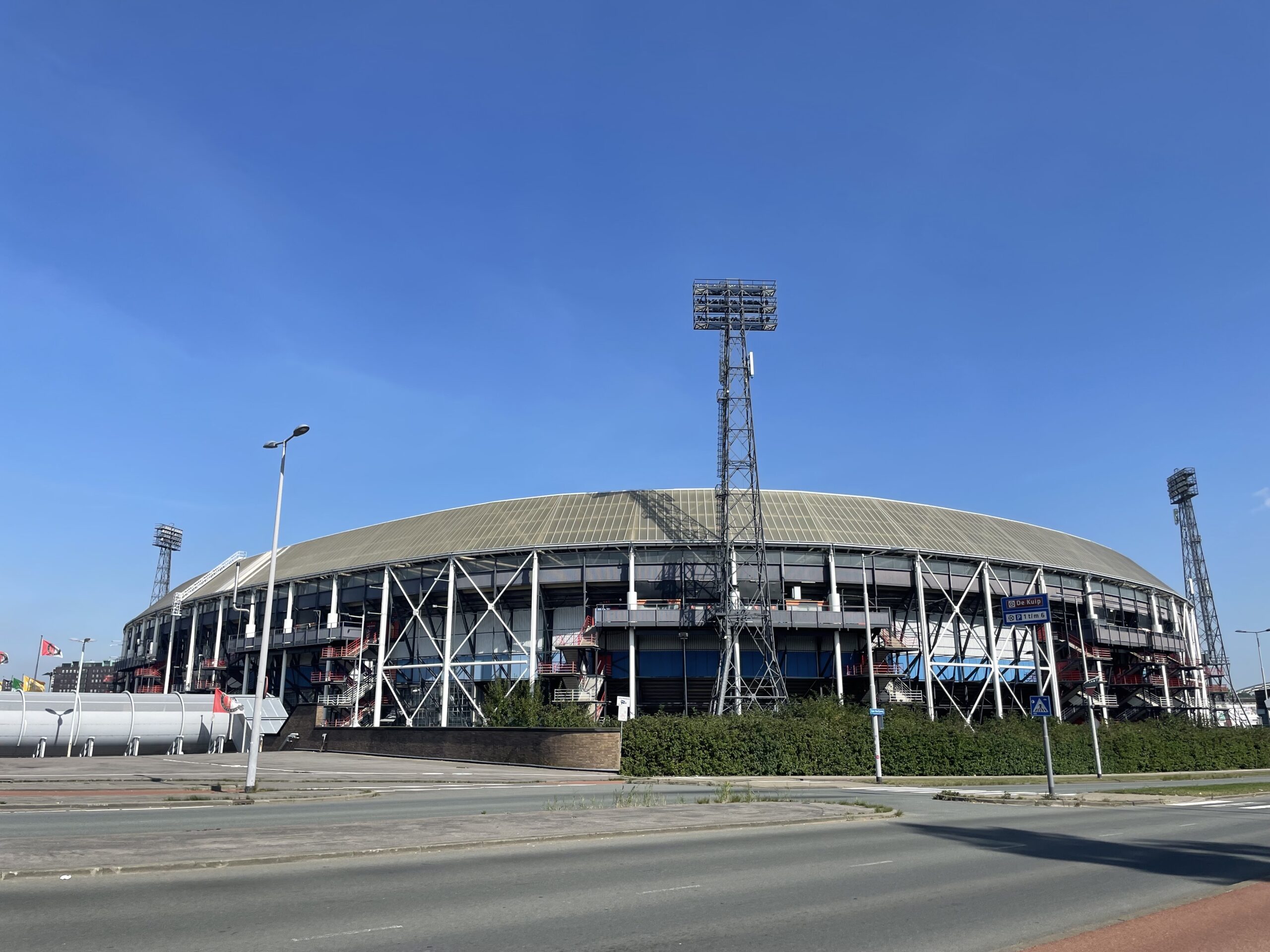
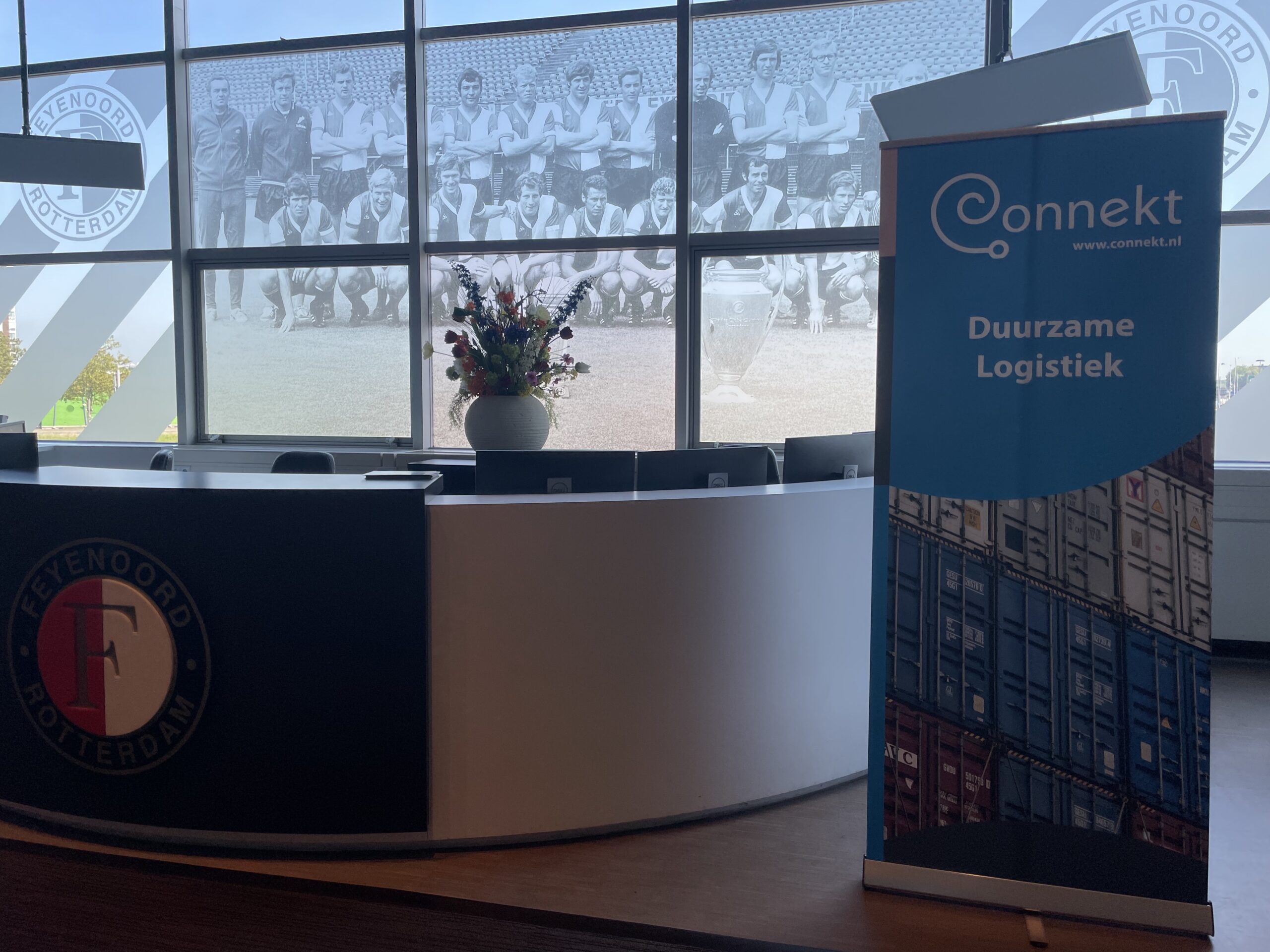
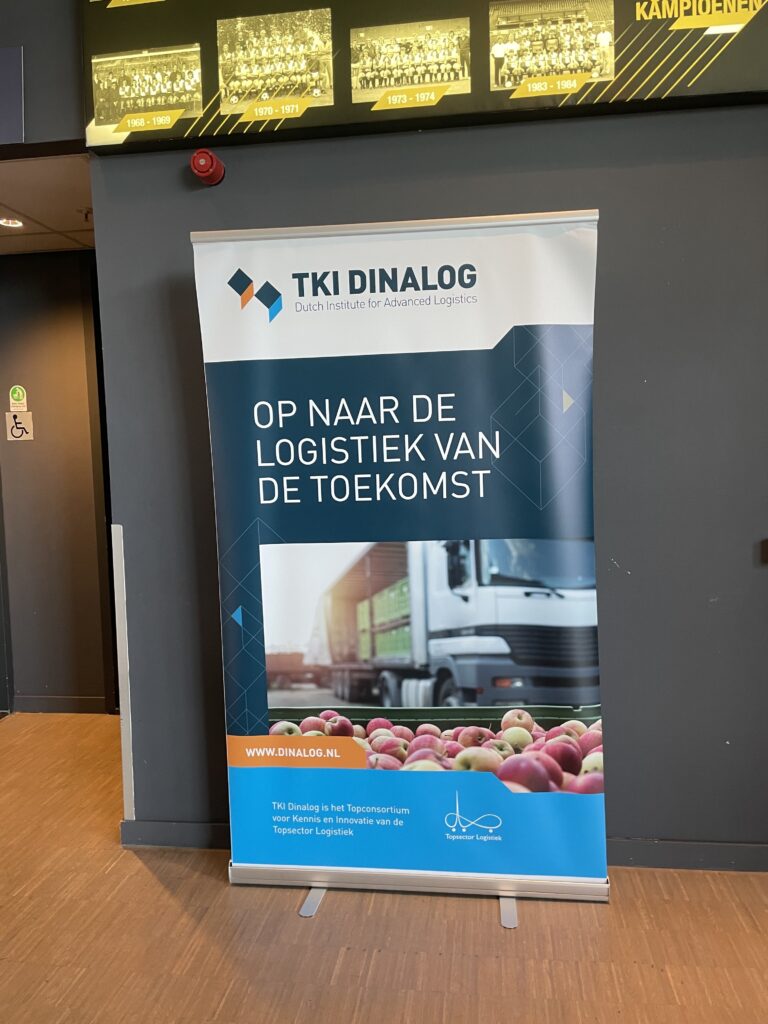
The festival covered several topics such as energy transition, resilience and predictability, people, society and logistics, cities and space, digitalization and circularity in logistics.
It was organized into a plenary, several parallel break-out sessions and a demonstrator area devided into three themes: games, artificial intelligence and innovations.
I participate to this festival to get to know better the status of logistics in the Netherlands and validate the current challenges I have identifed in my research, particularly with respect to the social and public impact of the sector.
I share in this post few of my notes and insights from my visit.
The plenary
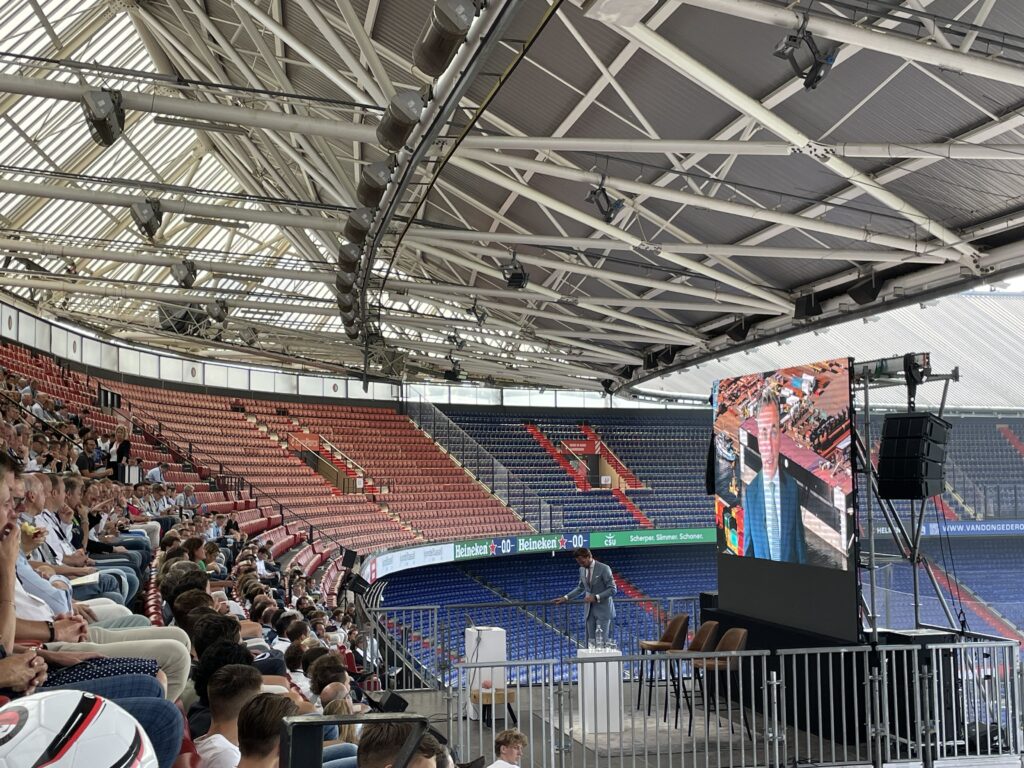
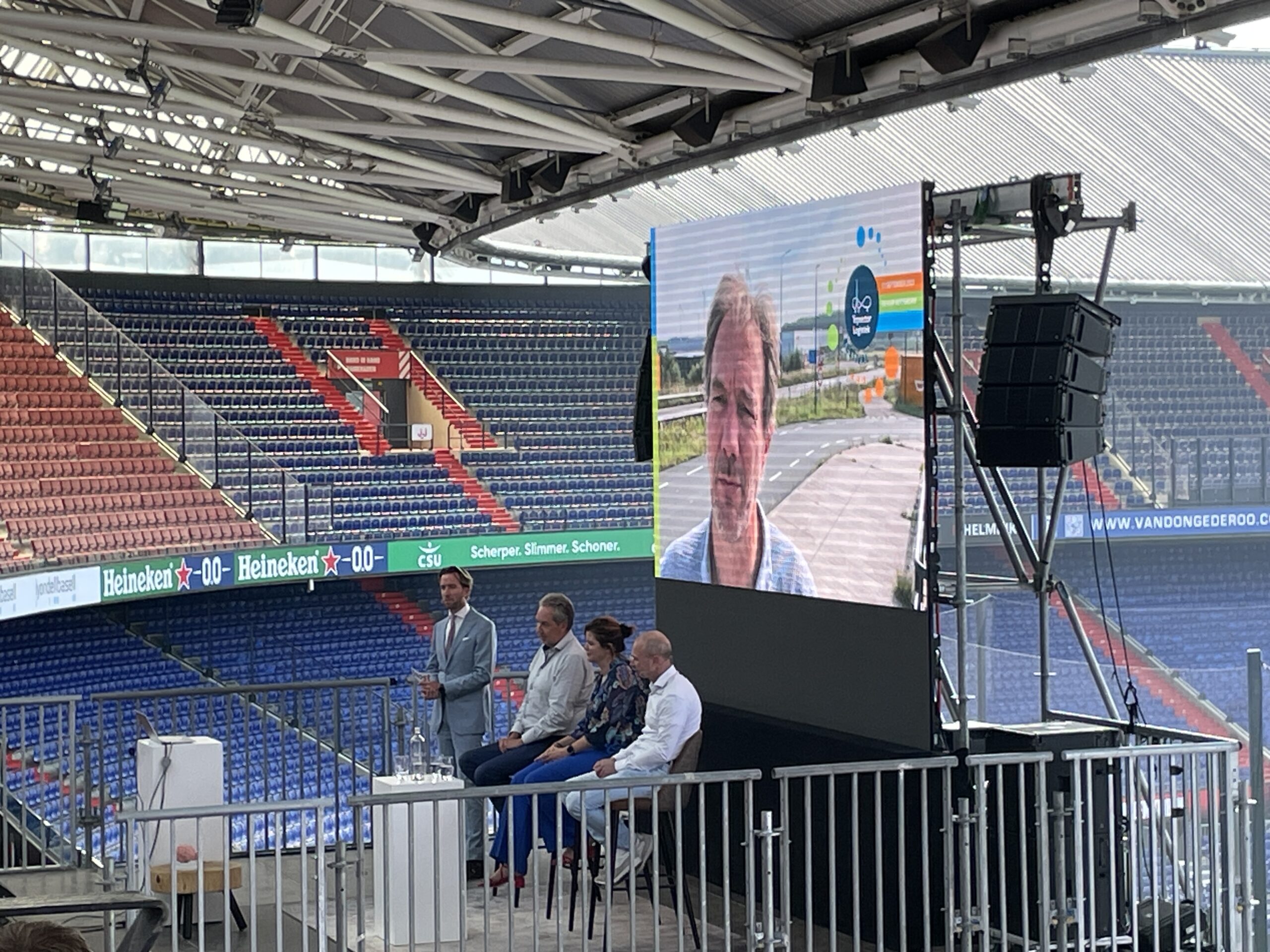
The plenary was energetically chaired by Joost Hoebink who soon invited, with 3 ‘gentle’ football kicks, few professionals among the audience to introduce themselves and that was a very powerfull ice-breaker, worth to be mentioned!
A message from the Dutch Minister of Infrastructure and Water Management Mark Harbers nicely reminded us that without transport and logistics the Dutch economy cannot move on.
Interestingly recent figures from the Central Bureau of Statistics showed the increase of enterprises’ bankruptcies in this sector, attributable to various factors such rise of inflation, decrease in production, decline in international trade, slowdown of the construction industry, shortage of workforce.
Shortage of workforce was definitively a topic across the festival, mentioned also by Aad Veenman, Jan Fransoo, Roy Bolscher, Annemarie Withag-Terpstra who among other activities are making considerable efforts to attract back young talents to the sector.
The talk of Ayca Szapora made us travel into the world of cognitive illusions, habits formation and behavior change. She provided very useful tips for change management, which is another core challenge in logistics today. I have enjoyed her talk, I am always glad to hear people able to make complex neuroscience insights available to the practice of everyone.
Did you know that our brain is lazy? It tends to execute quickly tasks that have low computational cost, while everything else (for example learning something new or adapting to undesired circumstances) causes ‘brain pain’ and resistance. So In order to change behavior one needs to facilitate that change by making it simpler to process in small steps and routines, for example by using the simple formula ‘IF…doing usual routine….THEN… introduce new routine’.
Demonstrator Area
I visited two stands and both were presenting gaming platforms for professional education.
- Chiara Pea from INCHAINGE introduced me to a web-based business game for value chain leaders: through the game, players can take up different professional roles in supply chain and work in a team, they learn about the impact of their decisions on planet/people/prosperity and this stimulates them towards more sustainable choises.
- Giovanni Douven, founder of Businessgaming, gave me a ride in the aircargogame, a simulator of air cargo operations that allows to visualize and control CO2 emissions during each operation.
I found both games excellent for rising awareness on sustainability aspects in the supply chain and I hope that more and more companies will use them for training their employees and improving their enviornmental footprint. As next step, I would love to see integrated in these simulators also a sustainability reporting system able to produce automatic report in line with the European Sustainability Reporting Standards (ESRS).
Break-out sessions
There were about 28 breakout sessions, running in parallel in two different timeslots, meaning that each participant could only attend two. They were all very interesting and it was an hard to choose among them.
I opted for the following two:
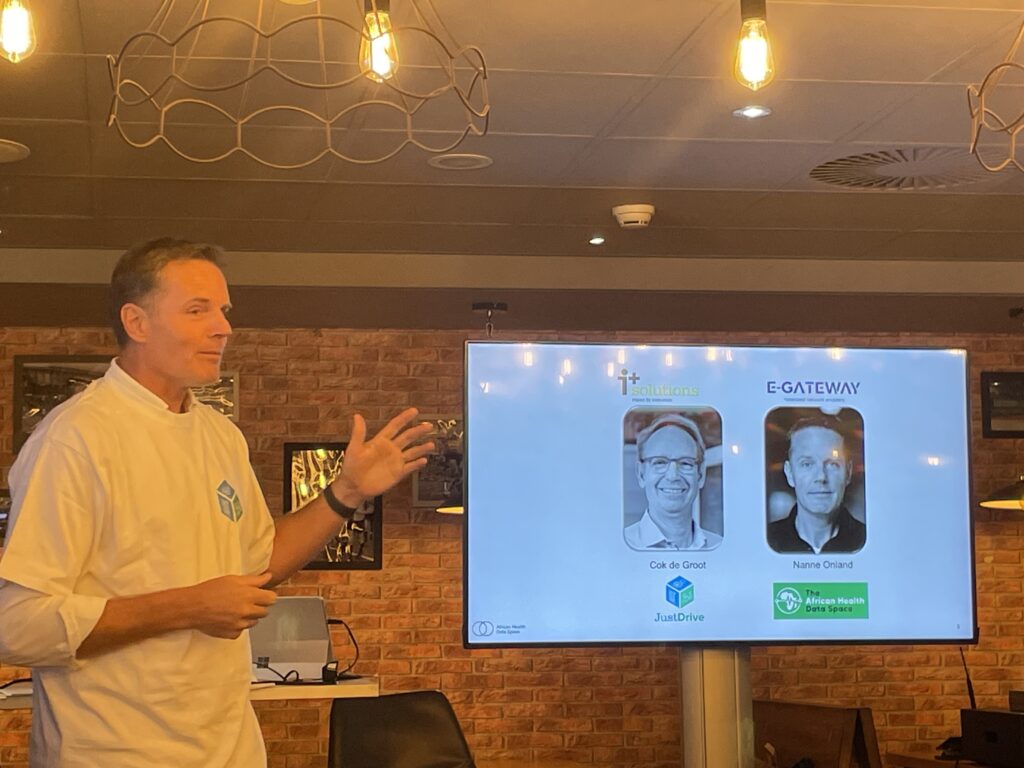
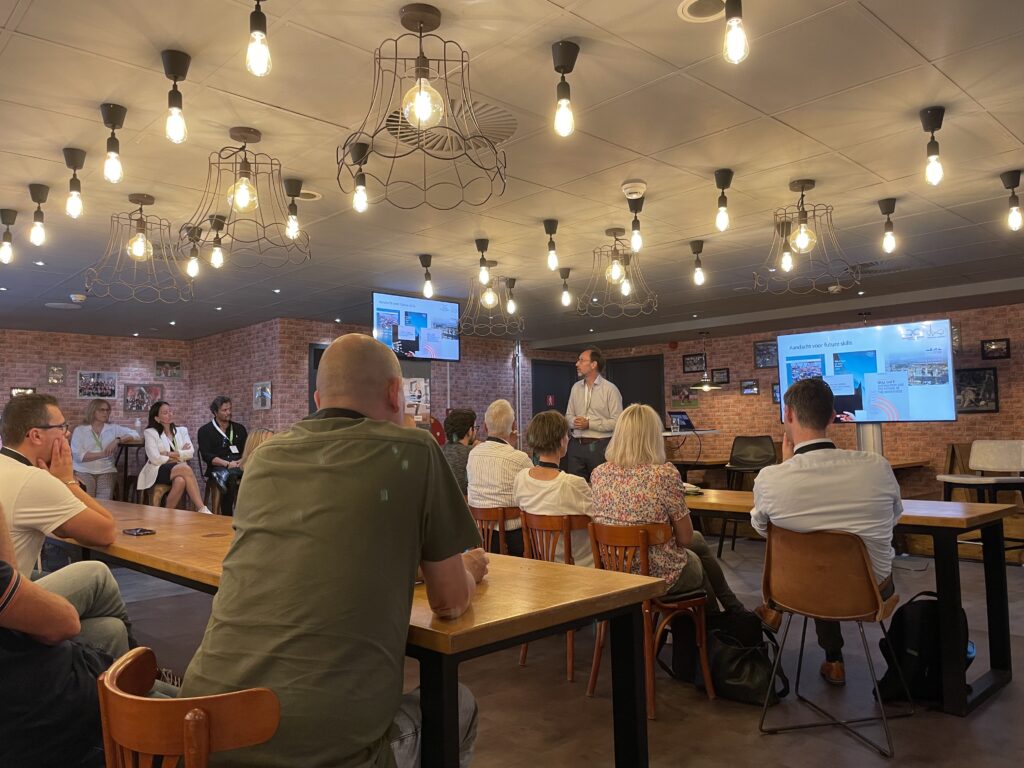
- the break-out session held by Nanne Onland, from egateway, and Cornelis De Groot from the NGO i+solutions. They presented the successful implementation of a centralized federated network or data space, to improve stock of medicines in Africa and ensuring timing of medical treatments at the point of care, starting with a number of hospitals in Burundi with the JustDrive Project. The data sharing infrastructure allows for end2end visibility (particularly important at the last mile) on the medicines stored at the warehouses, transported by motorcycles’ and available at the hospital, using QR code linked data. The infrastructure was built to accommodate locally available outdated technological devices, such as old mobile phones and computers, and limited network availability. The development process required the interactions of multiple parties from governments, foundations, suppliers, drivers, hospital operators to establish a regime of data governance. The project is at its start and has definitively a potential to create impact on local communities. Issues such as lobbies and future conflict of interests were raised during the sessions and will need to be addressed, at the same time, as NGO, i+solutions intends to open source as much as possible and focus on the realization of better Health System in Africa rather than on profits and intellectual property.
- the break-out session held by Thierry Verduijn, Caroline Blom, Manue Azoulay, Richard Holman on the skills of logistics professionals of the future. TLN together with evodenedex, Hogeschool Rotterdam and Hogeschool Windesheim are avidly working to develop the next curricula for the professionals that will lead the logistics sector in 7 to 10 years from now. They have developed a concept of learning communities in which students and professionals can learn, work, innovate by interacting with each other in small groups. From this exercise and from market research they have identified that artificial intelligence, augmented and virtual reality, cobots, zero emission logistics, automated vehicles and automated warehouse are relevant trends and should be included in future curricula. This session was also organized in working groups so that each group could suggest on possible skills required by four future logistics professionals: retail planner, national distributor, inland shipper, sea freight forwarder.
I was particularly intrigued by some of the audience interventions:
- Why is the necessity to change curriculum becoming so important now? According to me the answer to this question can be found in the followings 1) technological development has become pervasive leading to the urgency to spread digital literacy throughout all curricula, 2) logistics is the backbone of a nominal and an emergency economy, the increasing loss of workforce seen over the past years also demands for new strategies to keep this fundamental sector attractive for workers, 3) innovations can improve efficiency and lead to zero emission logistics but operators needs to be trained to fully benefits from them
- New paying models or rewarding systems are required for both motivating the workforce and keeping the businesses running
- A cultural change is needed with respect to labor force treatment that would allow for flexibility of working hours and more opportunities for female workers
- Training on soft skills for managers must be intensified, particularly active bottom-up listening
- Starters in the job market are demanding for more decent and higher pay from one side, business owners fear lack of competences, setback and labor volatility from the other side
My Final Remarks and Food for Thoughts
I found the festival very inspiring and a good place for networking. I would have loved to have more time to explore also other break-out sessions, widen my knowledge on the local trends in the sector and hear the voice of more business owners, particularly how they are facing with the digital transformation, the transition to green economy and the loss of human capital.
With reference to human capital and looking-forward education, I leave the reader with these challenging questions:
- Why shouldn’t we be paying a high salary to starters, after knowing that they had excelled in their studies, expressly designed with real-life internships and with training on sophisticated serious game software so that they could have a successful career?
- What are we missing here while designing the new curricula?
- How can we address the business owners’ fear and grow their trust towards the future leaders of logistics?
- Can we get inspiration from how the brain deal with cognitive dissonances?
- Which innovative paying models could satisfy the needs of both employers and employees?
- Can technology play a balancing role through which employers and employees can build trust?
Get in contact to share your thoughts!
